INTERNATIONAL WOMEN’S RIGHTS DAY 2022
- 08/03/2022
- Posted by: Gaetan Dermien
- Category: ACP EN, News
No Comments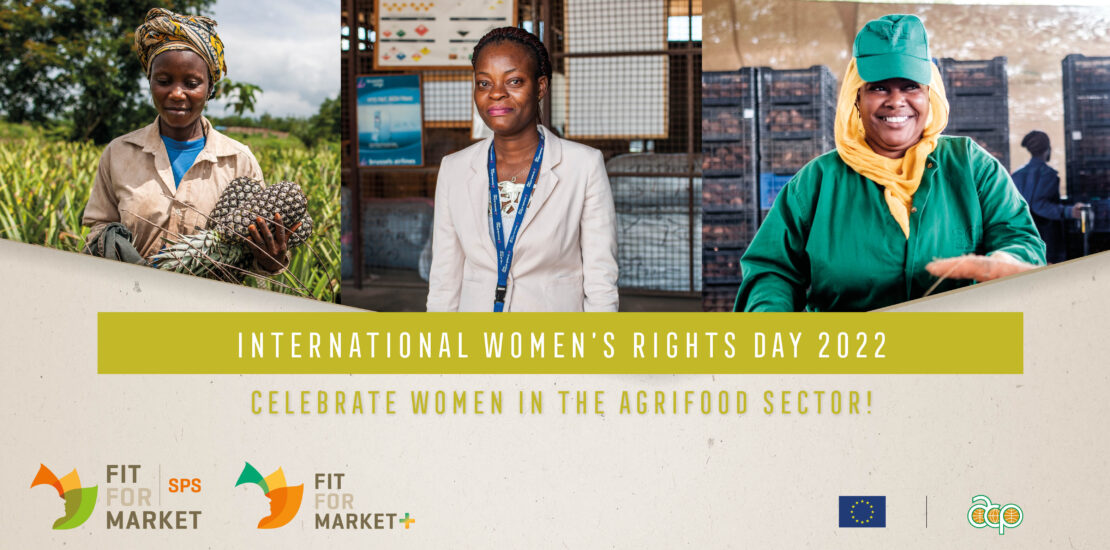 Celebrate women in the agrifood sector! Worldwide, about a third of established businesses are women owned and managed.1 Sub-Saharan Africa has of the highest rates of women’s entrepreneurs.2 Latin America and the Caribbean region show a high rate of women entrepreneurs involved in high-growth activity and manufacturing and transportation sector, half of them being under the age of 35.3 Women are a significant entrepreneurial force as owners of farms, input supply stores, service delivery businesses, and processing and export firms… +
Celebrate women in the agrifood sector! Worldwide, about a third of established businesses are women owned and managed.1 Sub-Saharan Africa has of the highest rates of women’s entrepreneurs.2 Latin America and the Caribbean region show a high rate of women entrepreneurs involved in high-growth activity and manufacturing and transportation sector, half of them being under the age of 35.3 Women are a significant entrepreneurial force as owners of farms, input supply stores, service delivery businesses, and processing and export firms… +Strengthening fruit and vegetable exports and SPS in Togo
- 20/12/2021
- Posted by: Gaetan Dermien
- Category: News, Togo
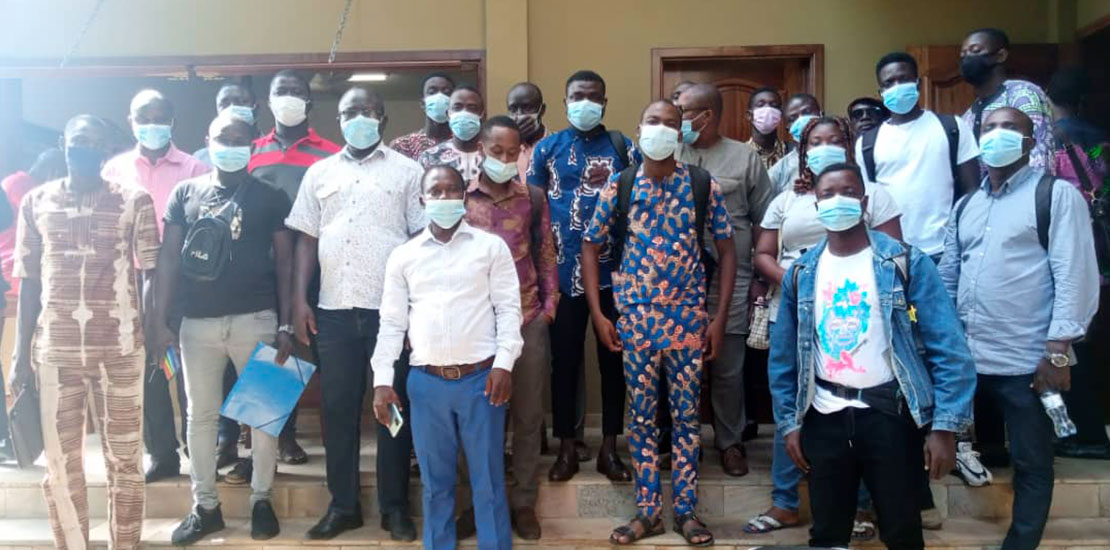 On 27 August, 40 representative of member companies of the Association of Producers, Processors and Exporters of Vegetables and Fruit of Togo (APROTELF) met in Lomé. Those attending the meeting included representatives of horticultural companies, the Plant Protection Directorate and GIZ/ProDRA (the German Development Agency’s Rural Development Programme). Participants discussed the status of fruit and vegetable exports from Togo. The country primarily exports pineapples, leafy green vegetables and some other local products to Europe. Togo’s fruit and vegetable exports to… +
On 27 August, 40 representative of member companies of the Association of Producers, Processors and Exporters of Vegetables and Fruit of Togo (APROTELF) met in Lomé. Those attending the meeting included representatives of horticultural companies, the Plant Protection Directorate and GIZ/ProDRA (the German Development Agency’s Rural Development Programme). Participants discussed the status of fruit and vegetable exports from Togo. The country primarily exports pineapples, leafy green vegetables and some other local products to Europe. Togo’s fruit and vegetable exports to… +IICA-COLEACP Caribbean Agrifood Business Series: Ensuring food quality and safety
- 15/12/2021
- Posted by: Gaetan Dermien
- Category: Barbados, Caribbean, Jamaica, News, Suriname
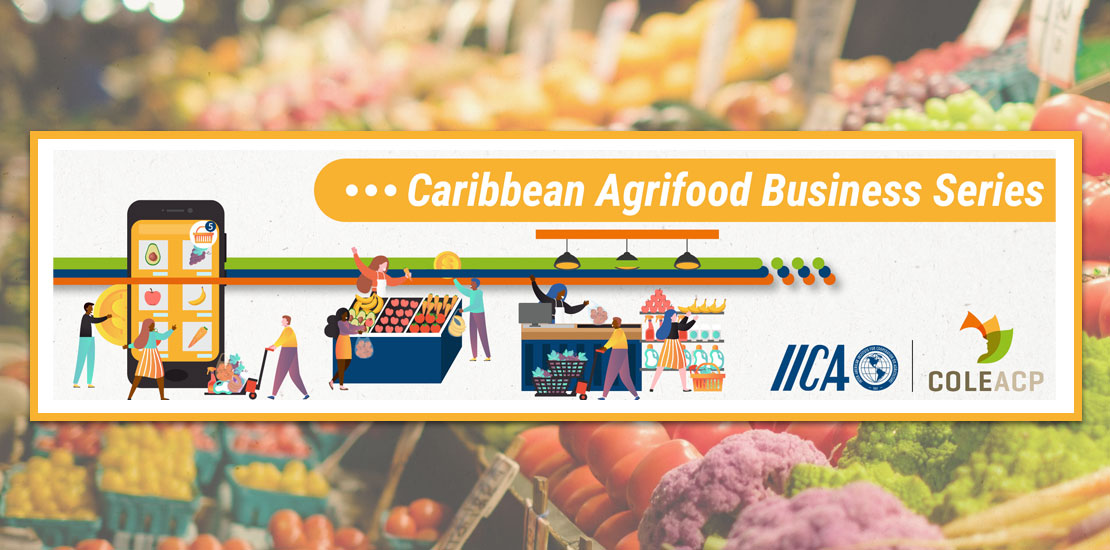 The fourth session of the Caribbean Agrifood Business Series, organised by the Inter-American Institute for Cooperation on Agriculture (IICA) and COLEACP, focused on “Ensuring food quality and safety in the Caribbean: the key role of SMEs and businesses”. The online session on 9 December reunited 240 participants from the Caribbean and other parts of world, including 15 African countries. Entrepreneurs, food safety and quality specialists, and experts on policy and finance highlighted the importance of food and nutrition security in… +
The fourth session of the Caribbean Agrifood Business Series, organised by the Inter-American Institute for Cooperation on Agriculture (IICA) and COLEACP, focused on “Ensuring food quality and safety in the Caribbean: the key role of SMEs and businesses”. The online session on 9 December reunited 240 participants from the Caribbean and other parts of world, including 15 African countries. Entrepreneurs, food safety and quality specialists, and experts on policy and finance highlighted the importance of food and nutrition security in… +The future of food is in women’s hands
- 16/10/2021
- Posted by: Sandra Borma
- Category: Angola, Caribbean, Ghana, Kenya, Liberia, News, Nigeria, Pacific, Uganda, Zambia, Zimbabwe
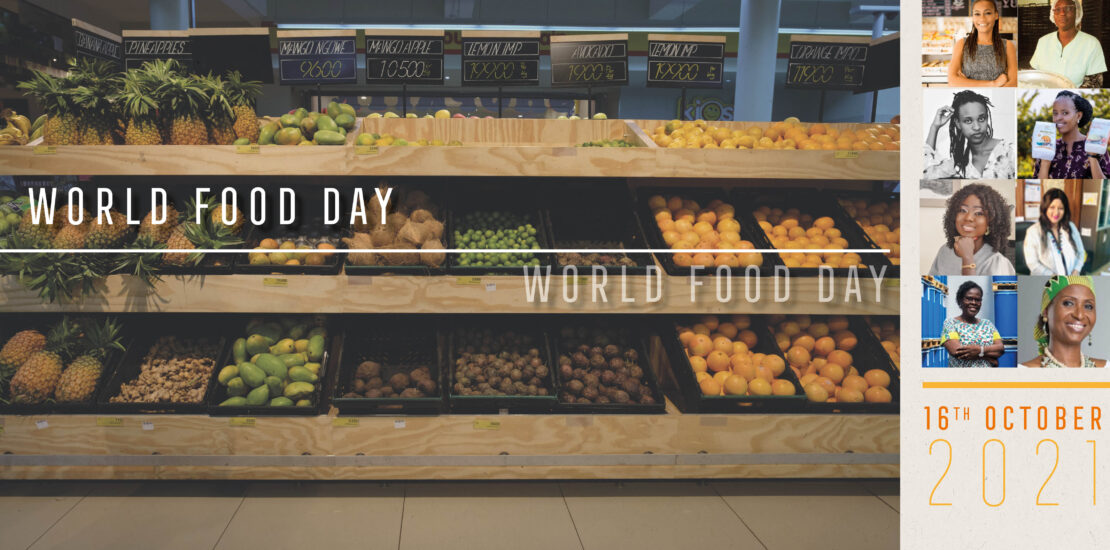 To celebrate World Food Day (16 October) and the International Day of Rural Women (15 October), COLEACP joins the United Nations in celebrating the unsung contribution of ACP women entrepreneurs to our food system. Women are a significant entrepreneurial force as owners of farms, input supply stores, service delivery businesses, and processing and export firms whose contributions to local, national, and global economies have significant impact on poverty reduction, employment creation and wellbeing of rural communities and society at large.… +
To celebrate World Food Day (16 October) and the International Day of Rural Women (15 October), COLEACP joins the United Nations in celebrating the unsung contribution of ACP women entrepreneurs to our food system. Women are a significant entrepreneurial force as owners of farms, input supply stores, service delivery businesses, and processing and export firms whose contributions to local, national, and global economies have significant impact on poverty reduction, employment creation and wellbeing of rural communities and society at large.… +Rural women – heroes and role models – are not celebrated enough
- 15/10/2021
- Posted by: Sandra Borma
- Category: Angola, Caribbean, Ghana, Kenya, Liberia, News, Nigeria, Pacific, Somalia, Tanzania, Uganda, Zimbabwe
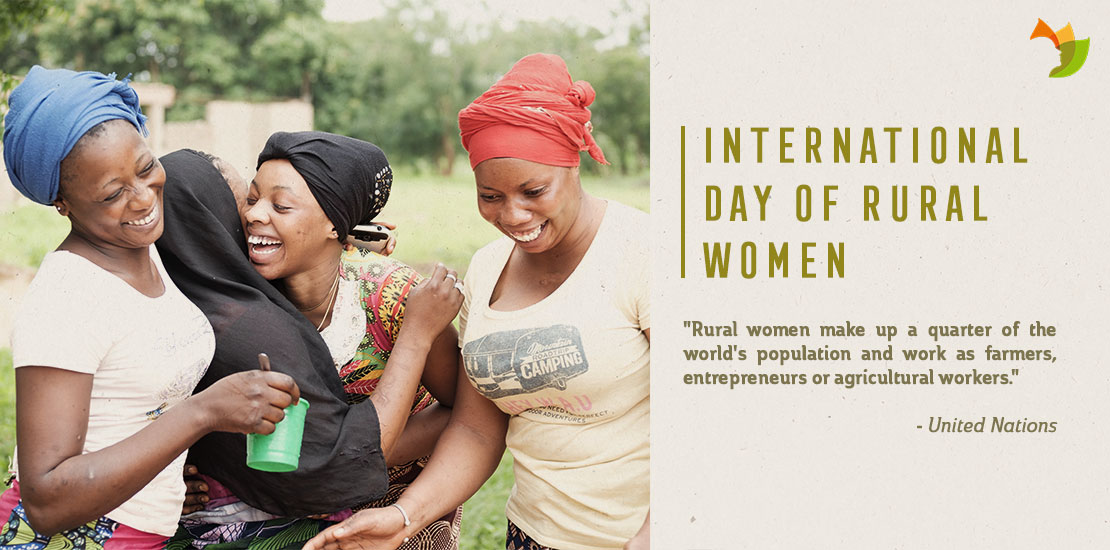 Did you know? “Rural women make up a quarter of the world’s population and work as farmers, entrepreneurs or agricultural workers” United Nations. To celebrate the International Day of Rural Women (15 October) and World Food Day (16 October), COLEACP joins the UN in celebrating the resilience of rural women in the wake of Covid-19. The pandemic has affected most sectors, and many are still struggling to recover. Agriculture is no exception, especially the women in this sector. According to… +
Did you know? “Rural women make up a quarter of the world’s population and work as farmers, entrepreneurs or agricultural workers” United Nations. To celebrate the International Day of Rural Women (15 October) and World Food Day (16 October), COLEACP joins the UN in celebrating the resilience of rural women in the wake of Covid-19. The pandemic has affected most sectors, and many are still struggling to recover. Agriculture is no exception, especially the women in this sector. According to… +Women bear the fruits of success!
- 08/03/2021
- Posted by: Sandra Borma
- Category: Kenya, News, Nigeria
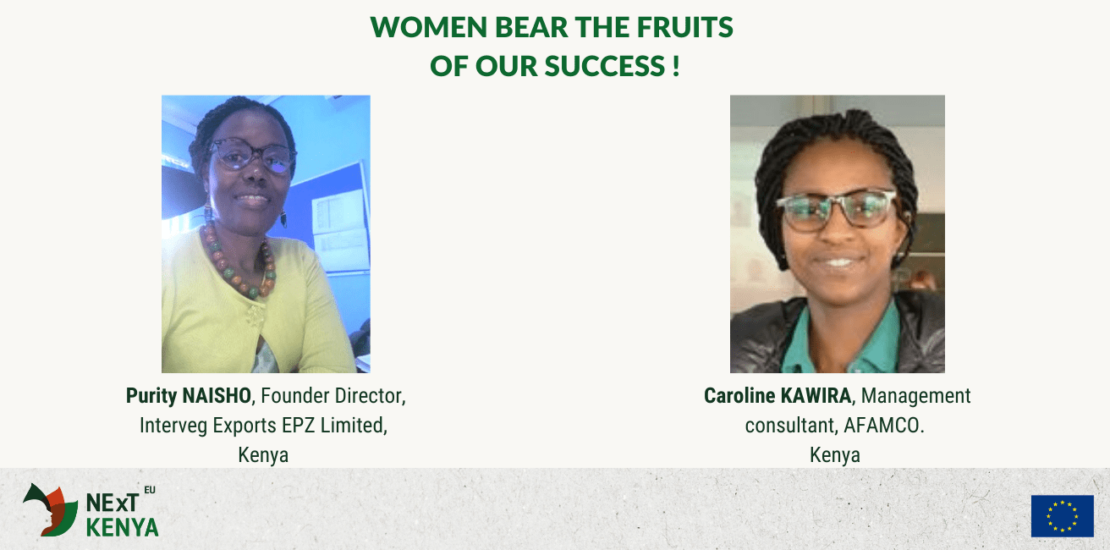 For International Women’s Day 2021, COLEACP is celebrating women’s achievements in Kenyan horticulture. Women entrepreneurs – as farm owners, input suppliers, service delivery enterprises, and running processing and export businesses – contribute to local, national and global economies, with significant impact on poverty reduction, job creation and the well-being of rural communities and society as a whole. PURITY NAISHO is a founding director of Interveg Exports EPZ Limited, a family-owned business. She is also the current vice chair of the… +
For International Women’s Day 2021, COLEACP is celebrating women’s achievements in Kenyan horticulture. Women entrepreneurs – as farm owners, input suppliers, service delivery enterprises, and running processing and export businesses – contribute to local, national and global economies, with significant impact on poverty reduction, job creation and the well-being of rural communities and society as a whole. PURITY NAISHO is a founding director of Interveg Exports EPZ Limited, a family-owned business. She is also the current vice chair of the… +Training in vegetable production (including post-harvest) for a women’s cooperative of Global Shea Alliance
- 26/11/2020
- Posted by: Sandra Borma
- Category: Ghana, News, Shea
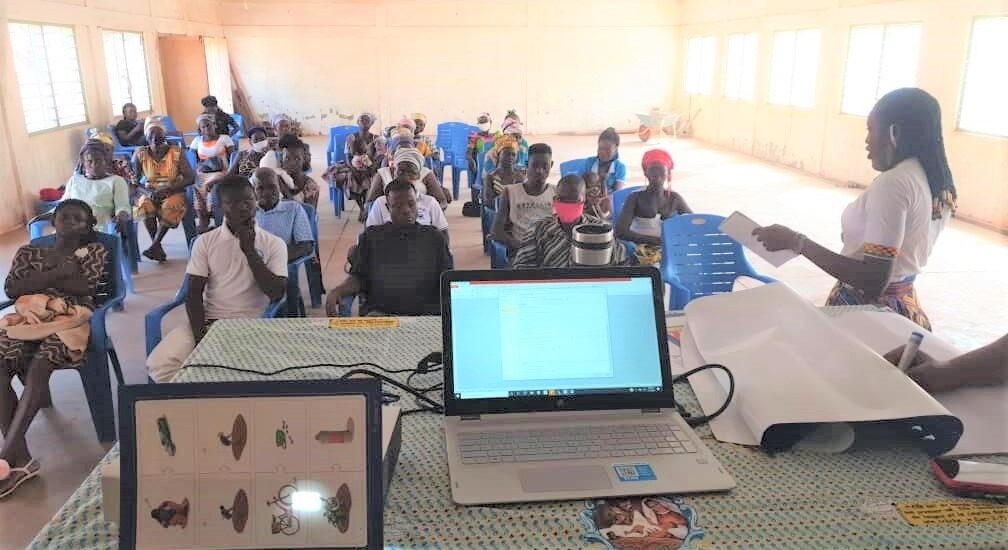 As part of COLEACP’s Fit For Market programme, training in vegetable production was organised for the Global Shea Alliance (GSA). The objective was to strengthen the participants’ technical skills on crop seasonality – what can be produced between October and April (shea off-season), good agricultural practices, crop protection, integrated pest management (IPM), safe use of pesticides, and post-harvest practices. Participants showed great interest and the training was highly appreciated. The next step, which is training on hygiene and food safety,… +
As part of COLEACP’s Fit For Market programme, training in vegetable production was organised for the Global Shea Alliance (GSA). The objective was to strengthen the participants’ technical skills on crop seasonality – what can be produced between October and April (shea off-season), good agricultural practices, crop protection, integrated pest management (IPM), safe use of pesticides, and post-harvest practices. Participants showed great interest and the training was highly appreciated. The next step, which is training on hygiene and food safety,… +
